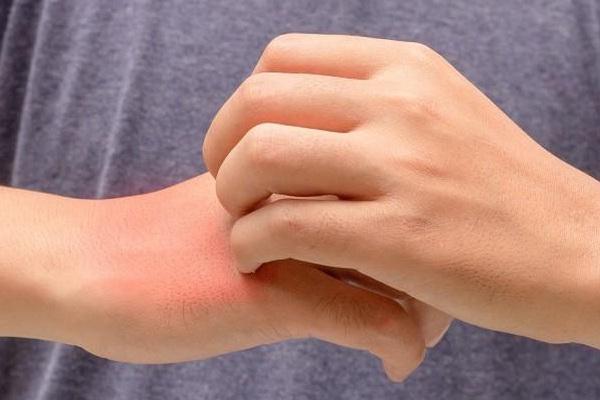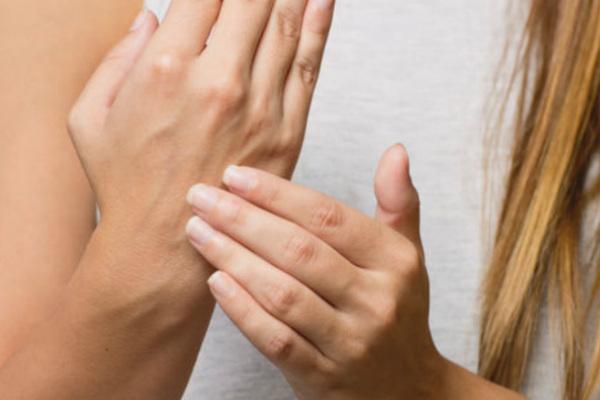Зміст
Pustular psoriasis is a relatively rare type of psoriasis, which is expressed by the appearance on the surface of the skin of erythema, inflammation, and pimples. How does it differ from normal psoriasis, where does it come from, and how to care for the affected skin?
What is psoriasis?

Psoriasis is a common disease that affects about 2% of Europeans. For most, it starts in adolescence. Even then, the silvery-white scales, which are difficult to hide from their surroundings, embarrass many people and already existing changes significantly reduce their self-esteem. Not only has their professional activity suffered but also their personal life.
The problem may sound trivial, but research has found that the quality of life of people with psoriasis declines to a degree comparable to that of people with other chronic conditions such as diabetes, heart disease, and even cancer!
How is pustular psoriasis different from ordinary?
Pustular psoriasis is one of the rarest types of psoriasis. Erythema, inflammation, and rash of many small pustules appear on the skin. Sometimes pimples merge, forming “puddles” of oil. If the skin lesions are extensive, they may be accompanied by a rise in body temperature, malaise, general weakness, and itching.
Where does pustular psoriasis come from?
Pustular psoriasis most often occurs after dose reduction or withdrawal of oral steroids. It can sometimes also manifest as a reaction after taking certain medications, such as
- antimalarial,
- oral contraceptives
- biologics (such as insulin or growth hormone),
- drugs from the group of beta-blockers, which are used for ischemic heart disease, heart failure, and disorders or hypertension.
Pustular psoriasis – drug treatment
A dermatologist who will select a treatment method especially for you should determine the direction of treatment. It all depends on how severe your disease is, where the skin lesions are located and how large they are.
There are two ways to treat pustular psoriasis:
- topical (ointments and creams)
- and general (oral).
Sometimes the doctor chooses one of these methods, and in some cases, he combines both.
Topical treatment usually supports general therapy or is used for minor skin lesions. The goal of topical therapy is to remove scales and reduce inflammation. However, this method of treatment has its advantages and disadvantages!
The advantage of topical treatment is undoubtedly the lower risk of side effects, while the disadvantages are lower potency compared to conventional drugs, the time it takes to apply the drug, and local side effects such as skin irritation.
Pustular Psoriasis – Home Treatment
If you suffer from psoriasis, unfortunately, without visiting a doctor, you will not need to see a doctor. However, there are many ways to help yourself at home. They will help you take care of the affected skin and reduce accompanying symptoms such as itching.
First, think about proper care and choose the right cosmetics, and second, pay attention to what you eat!
How to care for psoriasis skin?
If you have psoriasis, it is important to remember to take proper care of your skin. Find cosmetics containing salicylic acid or urea to help topical medications (creams or ointments) penetrate deep into the epidermis. At a later stage of treatment, do not forget to accurately moisturize and lubricate the skin with emollients, which will prevent excessive dryness of the epidermis and reduce itching.
Psoriasis and diet – what to eat and what to get rid of?

While you cannot cure psoriasis with diet, you can prevent symptoms from worsening and prolong the desired asymptomatic remission period. This will definitely have a positive effect on the quality of your life.
Exclude from the diet:
- foods high in sulfur – red meat and some vegetables such as beans and peas• fruits and vegetables that increase histamine production, which makes itching
- worse – for example, tomatoes, blueberries, strawberries, oranges, pineapples,
- dehydrating foods – coffee, alcohol, spicy foods,
- sugar.
Enrich your diet:
- green vegetables rich in folic acid – spinach, broccoli, lettuce,
- vegetables that improve skin condition – carrots, pumpkin, celery,
- white meat: chicken, turkey, fish.
Sit on a diet recommended for … the prevention of cardiovascular disease.
It is argued that patients with psoriasis have a much higher risk of developing cardiovascular diseases, obesity, diabetes, and hypertension than healthy people.
Therefore, if you have psoriasis, follow the recommended diet for the prevention of heart disease.
The postulates of this diet:
- exclude peppers, coffee, tea, monosodium glutamate, and grilled foods,
- quit smoking,
- limit the use of alcohol,
- If you are overweight, go on a low-calorie diet








